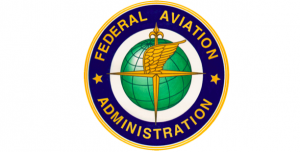The response to John Taylor’s FOIA request asking the FAA for information that point out the leisure drone registration program was ever used to implement rules is the most recent level of debate within the argument over this system.
By now, everybody within the drone communitiy is aware of about John Taylor’s successful lawsuit in opposition to the FAA, which decided that the FAA’s drone registration program was illegal. In response to the federal court docket of appeals resolution, the FAA has made the leisure drone registration program voluntary.
The FAA’s current discover that they might finish necessary drone registration didn’t finish the argument over this system. “The FAA continues to encourage voluntary registration for all owners of small unmanned aircraft,” says the company assertion. “The FAA is working on a final rule with respect to registration and marking that will implement the court’s decision.”
It appears clear that the FAA will proceed to pursue some type of registration. With FAA Reauthorization packages on the desk, the wording of the unique regulation may very well be modified to accomodate the prevailing program; or the main points of this system may change to fulfill the regulation. Representatives from the manned plane group and contributors on the unique drone registration process drive level out that registration gives a possibility to teach new operators about rules; opponents say that there are higher methods to perform that. And as John Taylor revealed the response to his FOIA request about how typically the FAA really used registration to implement drone regulation, one of many FAA’s major arguments – that registration is a software to carry rogue drone operators accountable – has come into query.
The FAA response to Taylor’s June 13, 2017 FOIA request “pertaining to enforcement actions arising from operations in which the operator was identified by use of a Part 48 registration number,” said that “A search of the Enforcement Information System (EIS) and the National Program Tracking and Reporting System (NPTRS), revealed no records pertaining to enforcement actions arising from operations in which the operator was identified by use of a Part 48 registration number.”
Taylor, and lots of others within the drone group, really feel vindicated. “From the outset,” says Taylor, “most of us suspected the registry would not serve its stated purpose. The vast majority of those who registered would be law-abiding citizens, who would never dream of flying recklessly. Reckless fliers would: 1) not register; 2) register, but remove their FAA-issued numbers when they flew recklessly; or 3) simply never be caught because their drones were not recovered.”
“The FAA’s response confirms that, as many of us suspected, the registry has been worthless as a tool to hold people accountable,” says Taylor. “Over 800,000 Americans registered, and paid in over $3,000,000.00, and we have nothing to show for it.”
“Here, it’s very possible that the drone registry was used often but there are no records that were kept, or that the FAA was not able to find the records in the specific files that were searched,” says Schulman, a member of the unique drone registration process drive. “I have been informed in various discussions that the drone registration database was used quite a lot to assist in investigations, including at the local level.”
Schulman feedback that the FAA has made a big effort to work with drone operators who don’t observe the principles. “Also, keep in mind that the FAA only does an enforcement action as a last resort, and they first try to educate and correct violations voluntarily,” he says. “The FOIA request was for enforcement actions, so would not include situations where the registration ID was used to contact the drone operator and educate or voluntarily correct the problem.”
Taylor, who says that he was stunned to seek out some members of the drone business criticize the court docket resolution on the idea that it undermined accountability, doesn’t agree. “This was the FAA’s opportunity, and it was their legal obligation, to demonstrate that the registry had some utility in terms of holding people accountable,” says Taylor. “If they’ve chosen to ‘hide the ball’ instead, so be it. If they have any verifiable evidence that the registry was used to hold anyone accountable, anywhere, I’m sure we’re all ears.”
While sustaining that registration is just not efficient for enforcement, Taylor acknowledges the necessity for brand new operators to study fundamental rules. “Had the FAA approached the issue from a standpoint of education, I suspect it would have had the hobby’s support,” he says. But Taylor thinks that producers, not authorities, ought to be accountable. While many producers together with DJI have contributed to academic efforts just like the KnowBeforeYouFly.org initiative, and know-how options reminiscent of geofencing to cope with rogue drone operators, these efforts will not be sufficient to fulfill the FAA.
“I’ve encouraged manufacturers to provided education, and perhaps require testing, before consumers can access their operational apps,” says Taylor. “That might have forestalled intervention by the federal government, in addition to its intrinsic value.”
 Unmanned Aerial Vehicle The latest drone news
Unmanned Aerial Vehicle The latest drone news




